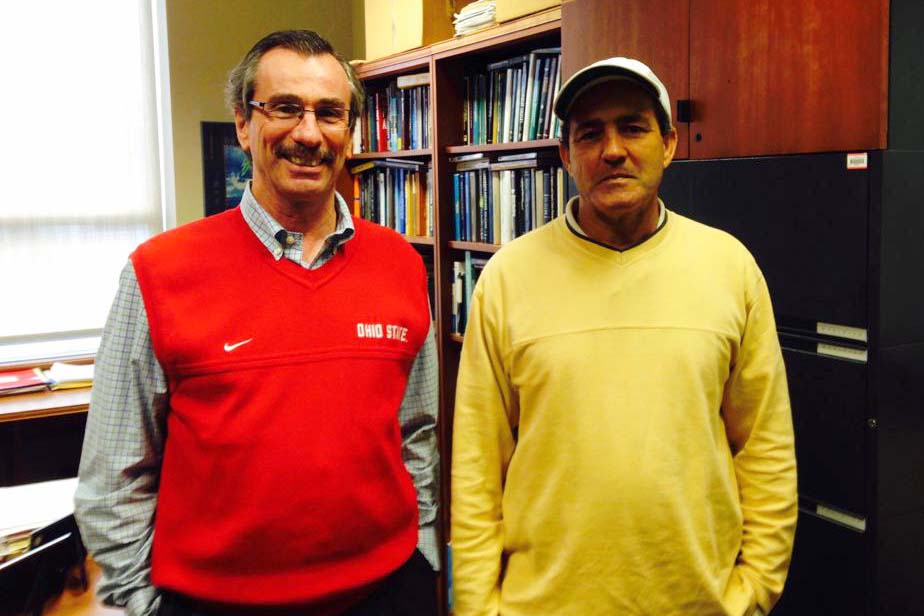 Professor Walter Zinn from the Fisher College of Business (left) and Rubens Valtecides Alves (right)
Professor Walter Zinn from the Fisher College of Business (left) and Rubens Valtecides Alves (right)
I was in Columbus, Ohio, in 1989 at Ohio State for two specific purposes: studying English and doing research on my master's dissertation in law, both successfully concluded. I remember arriving by plane, looking over the city and seeing it all snowy, something unprecedented for those who live in a tropical climate. I stayed at the Red Roof Inn Hotel north of campus until I rented an apartment for an 8-month stay next to High Street, next to the Ohio Union and the bustle of the city's bars and nightclubs. I remember walking to the stadium where I had English classes, so I had to cross the campus and walk through the snow-covered Oval and look at the very typical scenario of the harsh Ohio winter.
The master's research took place at Moritz College of Law, where I had the opportunity to meet the late Professor Stanley Laughlin, Professor Lee Jacobs and other faculty members. They immediately supported the project that was on Labor Law related to persons with disability, since in Brazil we had a constitutional provision in the 1988 Constitution, but there was no regulation to be applied. In the USA, there was ample legislation on the subject, which greatly supported my studies. With this research, I published a book named “New dimensions on Labor Law: persons with disability.”
Another research topic I focused on was accessibility for people with disabilities. I brought a manual from the Ohio government and used it for orientation here in Brazil. After that, the Brazilian government created laws about accessibility and made it mandatory to adapt access to people in public and private buildings. It was necessary to change the ABNT (Brazilian Association of Technical Norms) rules so that such changes could be made or established as criteria so the new buildings could be erected with conditions for full access for people, in any type of social mobility. All of this happened, and today, we have better conditions in Brazil for people to move around without restrictions through objective legal rules.
Over the years, I continued to visit Ohio State, where I carried out other research, such as doctoral studies on the principle of non-discrimination in employment. In my master's degree, the research evaluation panel attributed the highest grade, a degree of praise and the credits for a doctorate at PUC-SP (Pontifical Catholic University of São Paulo) under the supervision of Professor Cassio Mesquita Barros. Later, I returned to Ohio State with the honorable invitation of Professor Walter Zinn as visiting professor to conduct post-doctorate research with the theme “New trends in digital business: labor aspects.”
During this stay, the late Professor Stephen Hills commented that Ohio State would open a Gateway in Brazil to spread its academic goals. Also, I had a meeting with the Director of the Fisher College of Business about where the Gateway could be established, and I suggested that it should be in São Paulo, which happened in 2014.